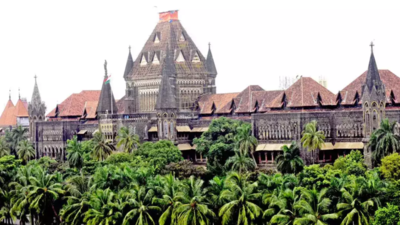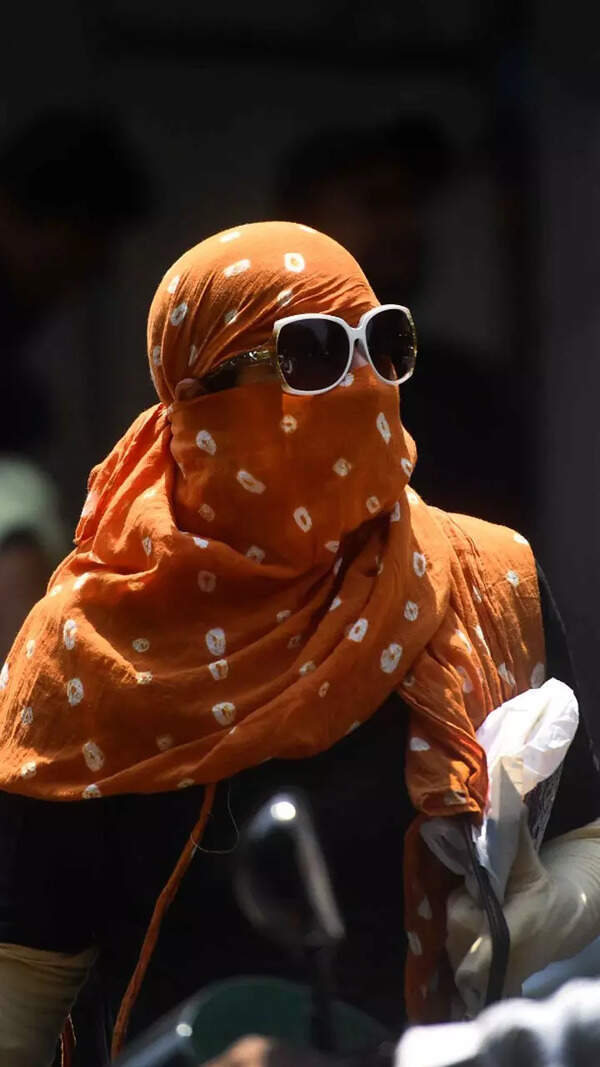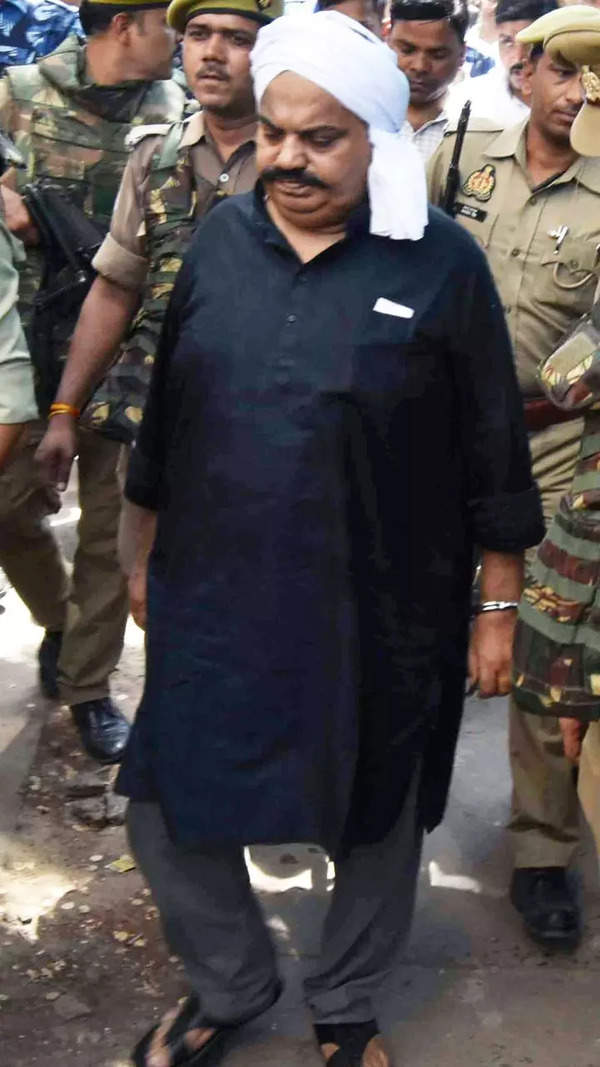- News
- City News
- mumbai News
- Convicts under anti-terror law, TADA, excluded from confinement in open prisons: Bombay high court
Trending Topics
Convicts under anti-terror law, TADA, excluded from confinement in open prisons: Bombay high court

Terror convicts are not entitled to open prisons, said Bombay high court and rejected a petition filed by a 1993 serial bomb blasts case convict Sardar Shahvali Khan, serving life sentence, to be sent to one.
MUMBAI: Terror convicts are not entitled to open prisons, said Bombay high court and rejected a petition filed by a 1993 serial bomb blasts case convict Sardar Shahvali Khan, serving life sentence, to be sent to one.
“Convicts under special statutes like TADA (Terrorists and Disruptive Activities (Prevention) Act) would fall in the categories’’ that shall normally not be sent for confinement to open prison, held the bench of justices Mangesh Patil and Abhay Waghwase.
The April 11 judgement made available on Monday after considering the Maharashtra Open Prison Rules, framed in 1971 that govern who and who cannot be kept in open prisons, held, “The convicts for grave offences and habitual offenders are excluded from the benefit of selection for confinement in an open prison. The convicts under TADA, in our opinion, can easily fit into such a category of prisoners who have been excluded from such benefit".
Khan, over 60, had applied several times for a transfer from the Central prison at Harsul, Aurangabad, to an open prison. After several rejections and with matters travelling to the Supreme Court and back, he had challenged before the HC, the latest rejection by the inspector general (IG) prisons last February, as being arbitrary and capricious use of his discretion.
The HC held that the IG has used discretion appropriately in denying to send Khan to open prison on the grounds that apart from being 1993 blasts convict he is 66 and certified infirm and unfit for hard physical labour which such inmates have to put in for agricultural activities there.
Khan’s lawyer Rupesh Jaiswal questioned the existence of any certification about his health, said the rules did not specifically bar convicts under the TADA Act and argued that the IG is expected to exercise his powers judiciously.
He said the state was “hellbent’’ on “depriving Khan his legitimate right” to be sent to an open prison.
Additional public prosecutor M M Nerlikar said a prisoner had no inherent right to be shifted to an open prison and while the rules did not expressly exclude TADA convicts from open prisons, the IG (prisons) is empowered by law to decide.
The HC said that even if there was no certificate regarding Khan being physically unfit, the prison dispensary record was sufficient for IG to “justify his conclusion that the petitioner is indeed physically unfit.’’
The HC also said as pointed out by the prosecutor Khan “Seems to be blowing hot and cold at the same time’’ about his health, “changing his stance according to need".
“If in October 2021 he was claiming that he was more than 65 years of age and was suffering from arthritis and other illnesses, he cannot be heard to say that subsequently he became fit and he is entitled to the concession of being shifted to an open prison, where manual labour has to be put in,’’ said the HC, dismissing his petition.
Open prisons
The number of open prisons in Maharashtra: 19
Number of closed prisons: 41 (including one women’s prison)
Capacity for all 60 prisons: 24,722
The actual number of inmates: 41,075 (as of January 2023)
Who can be sent to an open prison
Convicted criminals who:
·Are found to be of good behaviour, and are physically and mentally fit;
·Are willing to do hard work and abide by the rules
·Are sentenced to one year RI or more and completed one-fourth sentence excluding remissions
·Are sentenced to life imprisonment or more than 14 years and undergone five years
Who can not be sent to an open prison
· Habituals
·Known habitual
·Prisoners who are awarded three or more major punishments for prison offences during the last two years
· Prisoners having a pending case
· Prisoners suffering from a mental disease or any other serious disease
· Prisoners having a previous history of serious mental illness,
·prisoners convicted and sentenced for offences against the State including Waging War against the government of India (Section 121), assaulting the President, Governor etc (124), sedition (124A), public servant allowing prisoner of State or War to escape (128) and offences relating to the Defence Forces, rape, robbery, dacoity under the Indian Penal Code; offences under the Bombay Prevention of Gambling Act, 1887, or for offences under the Sea Customs Act
· Escapees and escape risks
· Hired and professional murderers
·Drug case convicts
·Class I prisoners
·Women prisoners,
·Any other category of prisoners whom the IG(Prisons) considers unfit
“Convicts under special statutes like TADA (Terrorists and Disruptive Activities (Prevention) Act) would fall in the categories’’ that shall normally not be sent for confinement to open prison, held the bench of justices Mangesh Patil and Abhay Waghwase.
The April 11 judgement made available on Monday after considering the Maharashtra Open Prison Rules, framed in 1971 that govern who and who cannot be kept in open prisons, held, “The convicts for grave offences and habitual offenders are excluded from the benefit of selection for confinement in an open prison. The convicts under TADA, in our opinion, can easily fit into such a category of prisoners who have been excluded from such benefit".
Khan, over 60, had applied several times for a transfer from the Central prison at Harsul, Aurangabad, to an open prison. After several rejections and with matters travelling to the Supreme Court and back, he had challenged before the HC, the latest rejection by the inspector general (IG) prisons last February, as being arbitrary and capricious use of his discretion.
The HC held that the IG has used discretion appropriately in denying to send Khan to open prison on the grounds that apart from being 1993 blasts convict he is 66 and certified infirm and unfit for hard physical labour which such inmates have to put in for agricultural activities there.
Khan’s lawyer Rupesh Jaiswal questioned the existence of any certification about his health, said the rules did not specifically bar convicts under the TADA Act and argued that the IG is expected to exercise his powers judiciously.
He said the state was “hellbent’’ on “depriving Khan his legitimate right” to be sent to an open prison.
Additional public prosecutor M M Nerlikar said a prisoner had no inherent right to be shifted to an open prison and while the rules did not expressly exclude TADA convicts from open prisons, the IG (prisons) is empowered by law to decide.
The HC said that even if there was no certificate regarding Khan being physically unfit, the prison dispensary record was sufficient for IG to “justify his conclusion that the petitioner is indeed physically unfit.’’
The HC also said as pointed out by the prosecutor Khan “Seems to be blowing hot and cold at the same time’’ about his health, “changing his stance according to need".
“If in October 2021 he was claiming that he was more than 65 years of age and was suffering from arthritis and other illnesses, he cannot be heard to say that subsequently he became fit and he is entitled to the concession of being shifted to an open prison, where manual labour has to be put in,’’ said the HC, dismissing his petition.
Open prisons
The number of open prisons in Maharashtra: 19
Number of closed prisons: 41 (including one women’s prison)
Capacity for all 60 prisons: 24,722
The actual number of inmates: 41,075 (as of January 2023)
Who can be sent to an open prison
Convicted criminals who:
·Are found to be of good behaviour, and are physically and mentally fit;
·Are willing to do hard work and abide by the rules
·Are sentenced to one year RI or more and completed one-fourth sentence excluding remissions
·Are sentenced to life imprisonment or more than 14 years and undergone five years
Who can not be sent to an open prison
· Habituals
·Known habitual
·Prisoners who are awarded three or more major punishments for prison offences during the last two years
· Prisoners having a pending case
· Prisoners suffering from a mental disease or any other serious disease
· Prisoners having a previous history of serious mental illness,
·prisoners convicted and sentenced for offences against the State including Waging War against the government of India (Section 121), assaulting the President, Governor etc (124), sedition (124A), public servant allowing prisoner of State or War to escape (128) and offences relating to the Defence Forces, rape, robbery, dacoity under the Indian Penal Code; offences under the Bombay Prevention of Gambling Act, 1887, or for offences under the Sea Customs Act
· Escapees and escape risks
· Hired and professional murderers
·Drug case convicts
·Class I prisoners
·Women prisoners,
·Any other category of prisoners whom the IG(Prisons) considers unfit

About the Author
Swati DeshpandeSwati Deshpande is Senior editor at The Times of India, Mumbai, where she has been covering courts for over a decade. She is passionate about law and works towards enlightening people about their statutory, legal and fundamental rights. She makes it her job to decipher for the public the truth, be it in an intricate civil dispute or in a gruesome criminal case.
Start a Conversation
FOLLOW US ON SOCIAL MEDIA
FacebookTwitterInstagramKOO APPYOUTUBE










